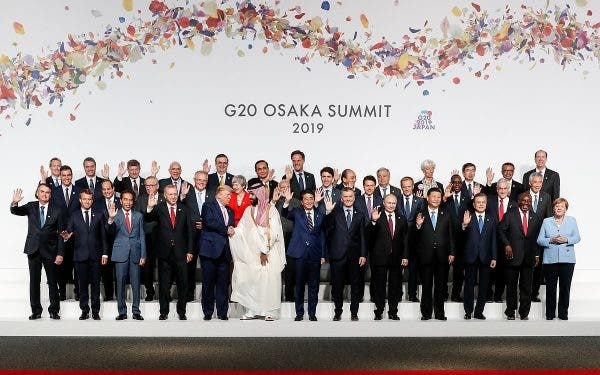Leaders at the G20 summit in Osaka, Japan in 2019
With media narratives of the “US v. China” and headlines on issues from Iran to North Korea to the Middle East, what do “East” and “West” mean in international relations? Should we get rid of them?
World Unfiltered turns to Professor Ayşe Zarakol of the University of Cambridge, author of After Defeat: How the East Learned to Live with the West.
See all World Unfiltered Videos
3:17 With the notion of “democracy” v. “autocracy”, are we in danger of returning to a Cold War or “clash of civilizations” narrative?
5:48 How do we begin to understand “East” and “West” in your work?
8:04 Having worked in the UK and US, do you think that you are in something called “the West”?
10:19 From your experience, do people in Turkey, Russia, or China see themselves as being inside “the East”?
12:11 Do you foresee a time when people’s reference point will start with China?
14:34 How does “stigma” operate in marking out the response of people to social hierarchies?
17:46 Do Turkish political leaders feel stigmatized or do they exploit that feeling in others?
19:50 Is Turkey always consigned to be in a state of limbo?
21:30 How do we shift cultural frameworks to reject hierarchy?
25:18 Can there be an international movement to remove hierarchies?
29:42 What did you mean in your recent caution about “American exceptionalism”: “This could happen to you”?
35:07 What does Professor Ayşe Zarakol believe in?

